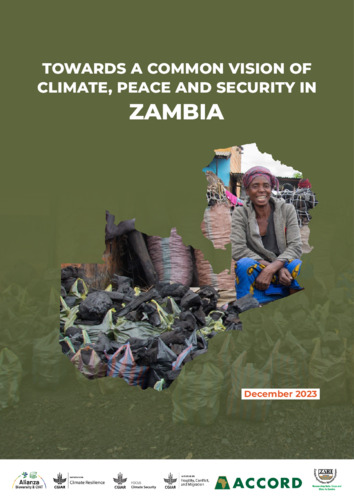Towards a common vision of climate, peace and security in Zambia
Abstract
Zambia has historically qualified as a regional model of stability and peace. However, this status is being undermined by several socio-political factors, including deeply entrenched patterns of social inequality and gender discrimination, high levels of poverty and youth unemployment, as well as recurring episodes of electoral violence. Climate and extreme weather events compound most of these vulnerabilities and even create new ones, generating societal dynamics that will likely increase social tensions with greater risk of insecurity. The CGIAR’s Climate Resilience initiative held a 2-day workshop in Lusaka to deepen understanding of the conditions under which climate-driven risks to peace and security can materialize in Zambia and what can be done to mitigate and prevent them from emerging. This workshop brought together over 45 stakeholders from Zambia’s humanitarian, development, climate and peace sectors, including government representatives, NGOs, international organizations, and research institutes. This report aims to provide a synthesis of the main findings of the workshop to inform and frame national-level policymaking in the area of climate, peace and security.

